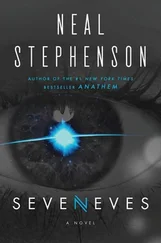Richard hadn’t logged on since late Wednesday evening. During the intervening thirty-six hours, of course, an equal amount of time had gone by in the virtual world of T’Rain, which meant that Richard’s character had to have been doing something during that day and a half—something quiet, innocuous, and inconsequential, such as sleeping. And indeed, according to the minilog that was now superimposed on Richard’s view of the world, the character, whose name was Fudd, had slept for eight hours, spent seventeen hours awake, slept for another eight, and rolled out of bed three hours ago. During Fudd’s waking hours he had, without any intervention from Richard, consumed a total of four meals, which accounted for two hours, and had devoted the remainder of his time to “meditation” and “training,” which had had the effect of making Fudd slightly more magically powerful and slightly better at kicking ass (not that Fudd needed a lot of improvement in either department). Every race and class of character in T’Rain had such automatic behaviors. Some, such as sleeping and eating, were shared by all. Others were specific to certain character types. Since Fudd was a sort of warrior magician, his “bothaviors” were meditation and training. If he’d been a miner, his bothavior would have been digging up gold, and whenever Richard logged on to that character he would have observed a slightly larger amount of gold dust in its purse.
Of course, being a warrior mage had way more entertainment value than being a miner. Players selected their character types accordingly. Still, the entire virtual economy would collapse unless miners were digging up the gold and other minerals that Pluto’s algorithms had salted around the world, and so miner characters had to exist in very large numbers to make the whole thing work. Here was how Corporation 9592 had squared this with making a game that was actually fun to play:
• Warrior mages and other interesting characters were expensive to maintain. Corporation 9592 charged the owners of such characters more money. Miners, hunter-gatherers, farmers, horse archers, and the like cost virtually nothing; teenagers in China could easily afford to maintain scores or hundreds of such characters.
• Miners, farmers, and the like didn’t require a lot of intervention by their owners. A miner character would reliably generate gold with no human intervention at all, provided that its player had the good sense to plonk it down in a part of the world that had actual gold mines and to protect it from raids by bandits, invaders, and so forth.
• If you really did feel like playing the miner, as opposed to just letting it act out its natural-born bothaviors for the entire duration of its life span, there was usually stuff you could do. There were rich veins of ore scattered around the world that, once discovered, could be mined far more productively than the run-of-the-mill deposits where the vast majority of miner characters toiled. These veins tended to be in rough border regions that could not be reached and explored without having a lot of fun adventures along the way.
• The social structure was feudal. Any character could have between zero and twelve vassals, and either zero or one lord. A character with no lord and no vassals was called a ronin, but, except among rank newcomers, there were few of these; more typical was to set up a moderately sized network of vassals who spent their lives doing things like mining and farming. A character who had some vassals but no lord was called a Liege Lord and, obviously enough, sat at the top of a hierarchy; most Liege Lords were small-timers running one-or two-layered networks of miners or farmers, but some ran deeper trees comprising thousands of vassals distributed among many layers of the hierarchy, and here was where the intragame politicking really became a significant part of the game, for people who cared and could afford to spend their time that way.
By making such provisions and tweaking them over the first couple of years of T’Rain’s existence, Richard and Nolan had managed to pull off the not-so-easy feat of making a massively multiplayer game that was as accessible to the all-important Chinese teenager market as it was to the podgy middle-aged Westerners who were dependent upon those Chinese teenagers for virtual gold. From one point of view, the Westerners got to have more fun, since they could purchase gold pieces and use that virtual cash to fund spectacular building projects and wars that were simply out of reach to the kids in China. But on the other hand, those kids in China were actually making money; playing the game, to them, was a source of income rather than an expense, and most of them were perfectly happy with the arrangement.
All of which fell under the general category of “plumbing”; it was the stuff that Richard had figured out very early in the project, the prerequisite for its being a self-sustaining business at all. He had become so fascinated by the gritty stuff, such as bothaviors of bellows-pumpers, that he had failed to pay enough attention to the features of the world that would be most obvious, and therefore most important, to the actual customers. Pluto’s world generation code was mind-blowingly awesome. Richard’s currency stabilization plan—once he’d hired a couple of people who knew about tensors—was worked out in better detail than such plans for real currencies. And the underlying code written by Nolan’s programmers to keep the whole system running was as well engineered as any in the industry. But for all that, they didn’t actually have a world. All Richard’s miners and horse archers and whatnot were just faceless manikins. T’Rain had no races, no cultures, no art and music, no history. No Heroes.
To provide all that, they needed what were known in the business as Creatives.
It seemed logical enough that their first Creatives ought to be writers, since their work would inform that of the artists and composers and architects who would be hired later. They had hired Professor Donald Cameron, a Cambridge don and writer of very highly regarded fantasy fiction, to lay down a few general markers. But Don Donald, or D-squared as they inevitably referred to him in all internal communications, was under contract, at the time, to deliver Volumes 11 through 13 of his Lay of the Elder King trilogy, and Richard really needed to get a lot written in a hurry.
And so it was that Richard, under a certain amount of temporal duress (launch was less than a year away), had conceived Corporation 9592’s Writers in Residence Program.
Years later, he was astounded by the naïveté of it. Writers, as it turned out, rather liked having residences. Once they had moved in, it was nearly impossible to dislodge them.
Devin Skraelin was the third writer they approached. Negotiations with the first two had run hard aground on various arcane new-media subclauses for which their lawyers had lacked the necessary mental equipment. Richard was desperate by that point, and, as it turned out, so was Devin. As a fantasy writer, he was not highly regarded (“one cannot call him profoundly mediocre without venturing so far out on the critical limb as to bend it to the ground,” “so derivative that the reader loses track of who he’s ripping off,” “to say he is tin-eared would render a disservice to a blameless citizen of the periodic table of the elements”), but he was so freakishly prolific that he had been forced to spin off three pen names and set each one up at a different publishing house. And prolific was what Richard needed at this point in the game. Early in his career Devin had set up shop in a trailer court in Possum Walk, Missouri, because he had somehow determined (this was pre-Internet) that it was the cheapest place to live in the United States north of the Mason-Dixon Line. He had refused to deal through lawyers (which was fine with Richard, by this point) and refused to travel, so Richard had gone to see him in person, determined not to emerge from the trailer without a signed contract in hand.
Читать дальше





